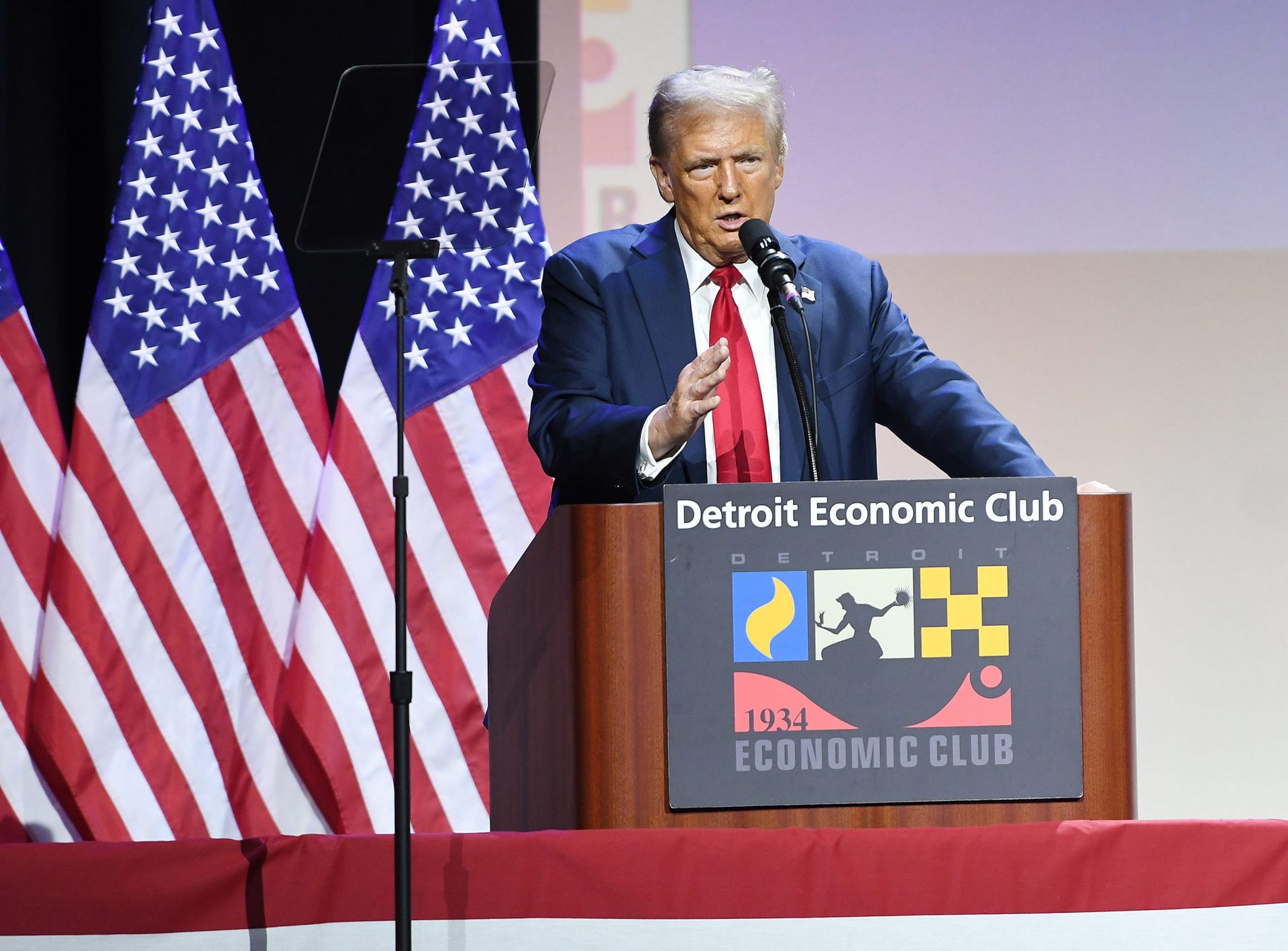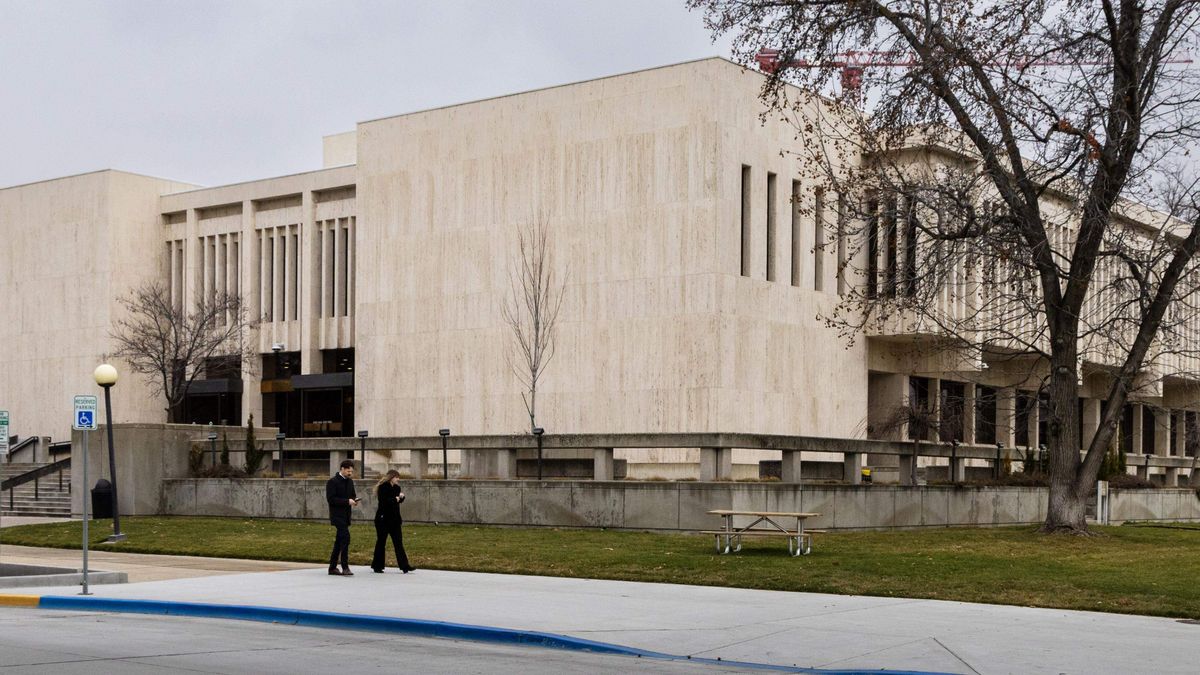By David Lerman
CQ-Roll Call
(TNS)
Oct. 10—Former President Donald Trump proposed making interest on car loans tax-deductible Thursday in the latest of a series of tax cuts he has promised on the campaign trail.
The GOP presidential nominee used a speech to the Detroit Economic Club to unveil his vision of a car industry “renaissance” built partly through higher protective tariffs on imports. But in seeking to gain advantage in a tight presidential contest against Vice President Kamala Harris, Trump has offered up a variety of tax breaks on tips, Social Security benefits and more, and he seized on car loans for his appearance in the battleground state of Michigan.
“Today I am announcing that, as part of our tax cuts, we will make interest on car loans fully deductible,” Trump said in a rambling two-hour speech.
“That’s going to revolutionize your industry,” he said. “This will stimulate massive domestic auto production and make car ownership dramatically more affordable for millions and millions of working American families.”
Detroit is home to automakers General Motors, Ford Motor Co. and Netherlands-based Stellantis N.V., owner of Chrysler. The United Auto Workers union has endorsed Harris, but Michigan remains fully in play, with Trump gaining ground over the past week and narrowing Harris’ lead in the state to 1.1 percentage points in the latest polling average compiled by analyst Nate Silver.
Interest deductions for car loans as well as credit card and other consumer debt were wiped out as part of the 1986 tax overhaul during the Reagan administration. Trump offered no price tag for the proposal, which would require action by Congress.
The last time lawmakers tried something similar was on a temporary tax break, authored by former Sen. Barbara A. Mikulski, D-Md., that initially passed the Senate as part of the 2009 Great Recession-era stimulus package. Mikulski’s amendment would have allowed car buyers to write off interest expenses on loans worth up to $49,500 for new cars purchased from late 2008 through the following year. The proposal, which scored as an $8.5 billion cost at the time, was dropped in conference negotiations with the House.
The auto loan plan marked the second tax break proposal Trump offered in as many days, after proposing to end the “double taxation” of U.S. citizens living abroad, who often have to pay income taxes in the United States and their country of residence. Trump has also proposed ending taxes on income earned through tips, on overtime pay and on Social Security benefits.
But much of Trump’s speech focused on his belief in higher tariffs to boost domestic manufacturing, and particularly domestic auto production. Trump said he was prepared to raise tariffs as high as necessary to prevent China from selling cars in the U.S. that it plans to produce in Mexico.
“I will impose whatever tariffs are required: 100%, 200%, 1,000%,” he said. “They’re not going to sell any cars into the United States with those plants.”
He said a tariff is “one of the most beautiful words in the whole word. It’s going to make us wealthy again.”
Trump also said he would formally notify Mexico and Canada of his intention to renegotiate the U.S.- Mexico- Canada trade agreement that he signed during his term, saying he would invoke a six-year renegotiation provision.
The result of his tough economic approach, he said, would be a “renaissance” in the car industry “the likes of which we have never seen before in this country.” He said revenue from tariffs also would reduce federal deficits “to practically nothing” and would be used to “start a massive debt reduction and further tax cuts.”
Harris has criticized Trump’s tariff plan, saying it amounts to a “national sales tax” that would hit consumers hard as costs get passed on in the form of higher prices.
Trump also vowed to boost domestic manufacturing by lowering the corporate tax rate from 21% to 15% for companies that make their products in the United States.
“You have to make your products here in America, and you have to hire American workers” or face higher tariffs, he said. U.S. carmakers would also get expanded research and development tax credits, allowing them to write off 100 percent of the cost of heavy machinery and other equipment in the first year of purchase.
“I intend for the triumph of the American auto industry to be among my greatest legacies,” Trump said. But he appeared to take a swipe at his Detroit audience as he attacked Harris’ economic policies.
“Our whole country will end up being like Detroit if she’s your president,” he said. “You’re going to have a mess on your hands.”
He recovered during a question-and-answer session, saying that with his policies in place, “I think this area will be one of the hottest areas of the country.”
___
©2024 CQ-Roll Call Inc., All Rights Reserved. Visit cqrollcall.com. Distributed by Tribune Content Agency LLC.
Thanks for reading CPA Practice Advisor!
Subscribe Already registered? Log In
Need more information? Read the FAQs




